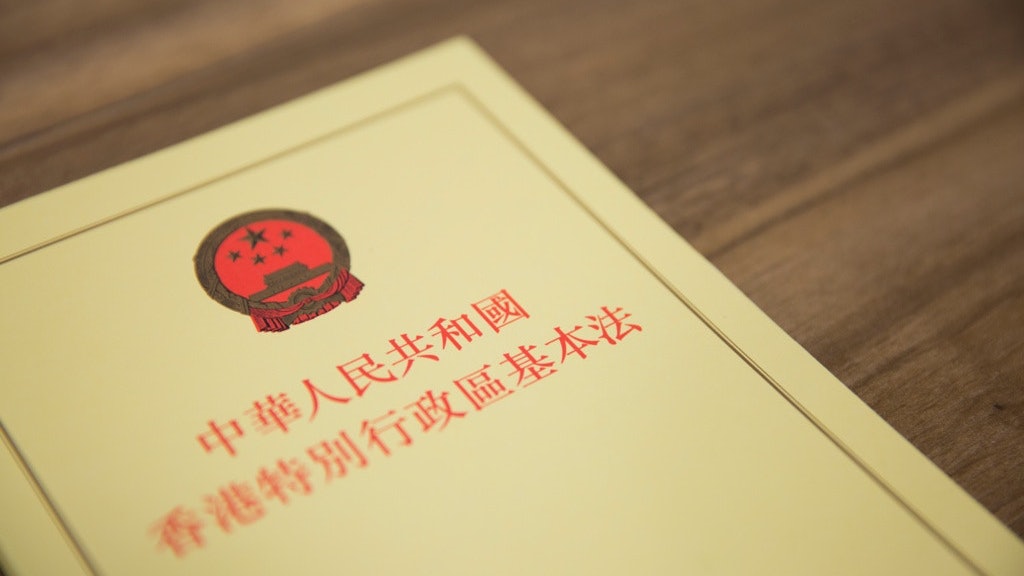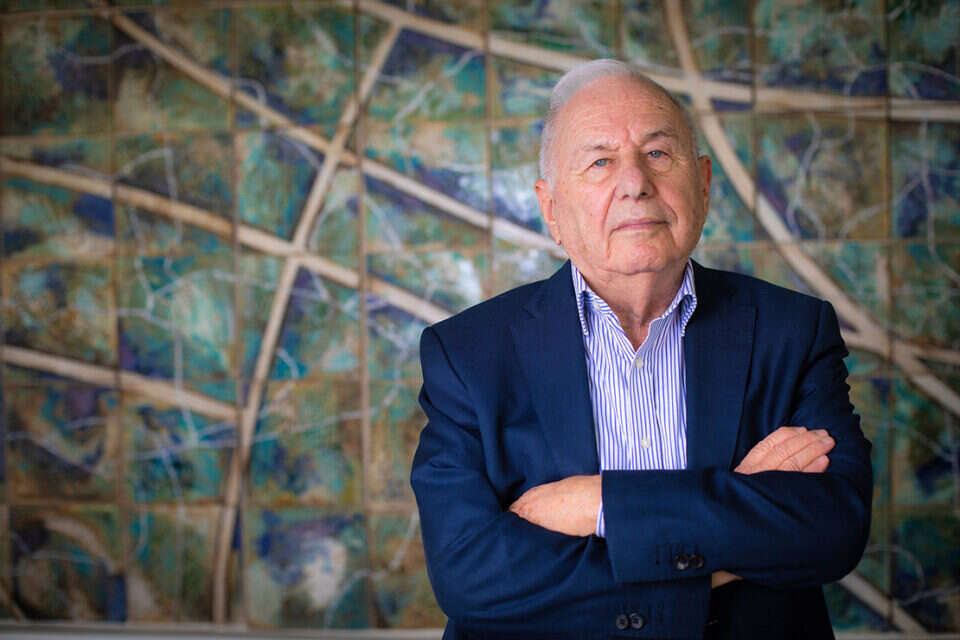Politics
Written by: Lin Jian
2020-03-25 07:00
Last updated: 2020-03-25 07:00April 4, 1990 was the day when the Basic Law of the Hong Kong Special Administrative Region of the People's Republic of China (the "Basic Law") was officially adopted. This year will mark the 30th anniversary. "Hong Kong 01" interviewed a number of politicians and legal professionals who had witnessed the drafting, discussion and birth of the Basic Law in the past. They reviewed history, thought about the present, and looked forward to the future. This article will summarize the history of the birth of the Basic Law.
Since the signing of the "Sino-British Joint Declaration" and the future of Hong Kong has been finalized, the Basic Law Drafting Committee and the Basic Law Advisory Committee have been established to prepare the drafting of the Basic Law and implement the "One Country, Two Systems" concept proposed by the then Communist Party leader Deng Xiaoping. After nearly three years of "three ups and three downs" consultations, Beijing formally enacted the Basic Law in 1990 and implemented it after the reunification in 1997.
In the 23 years since the reunification, the Basic Law has been regarded as a constitutional document and "small constitution" in Hong Kong. However, the practice process is not without controversy. Among them, the five interpretations of the National People's Congress, 23 legislative disputes, and political reforms have caused more or less shocks in Hong Kong society, and directly or indirectly affect today's political situation.
Deng Xiaoping has promised Hong Kong "Hong Kong people ruling Hong Kong", "high degree of autonomy", and "fifty years of unchanged" commitments to retain Hong Kong's original capitalist system in one country and two systems. (Profile picture / Photo by Lin Ruoqin)
Further reading:
[30 years of the Basic Law] Tan Yaozong: If more than half of the Pan-Presidential Assembly triggers a constitutional crisis
Dai Yaoting was a member of the Basic Advisory Committee
From the late 1970s to the early 1980s, the reform and opening up of the Chinese mainland was relatively stable. At the same time, the "Zhantuo Hongkong Sites Regulations" involving the New Territories will expire in 1997. There is an urgent need for China and Britain to negotiate the future of Hong Kong. problem. In September 1982, the then Prime Minister of the United Kingdom, Mrs. Dair, visited Beijing to meet with Deng Xiaoping to discuss the Hong Kong issue. When she left the Great Hall of the People, she accidentally fell and became a classic historical scene.
The negotiations between China and the UK were not smooth at first. The main difference was that the United Kingdom advocated "swap sovereignty for governance", that is, to recognize China's sovereignty but retain its actual governing power; China was relentless and insisted that sovereignty cannot be separated and Hong Kong must be restored. Exercise sovereignty and retain the original lifestyle of Hong Kong under the model of one country, two systems. Until 1984, the British side conceded and agreed not to have Hong Kong's sovereignty and governance after July 1, 1997.
On December 19 of the same year, China and Britain signed the "Sino-British Joint Declaration" in Beijing. Deng Xiaoping has promised Hong Kong "Hong Kong people ruling Hong Kong", "high degree of autonomy", and "fifty years of unchanged" commitments to retain Hong Kong's original capitalist system in one country and two systems. Since China must formulate constitutional documents after the reunification of Hong Kong during the transitional period, the Basic Law Drafting Committee (Draft Committee) and the Basic Law Advisory Committee (ACAC) were established in 1985.
The Draft Committee includes 59 members, 23 from Hong Kong and 36 from the Mainland. Hong Kong members include Li Jiacheng, Bao Yugang, Huo Yingdong and others from the business community, Tan Yaozong from a trade union, and 2 Democrats from Li Zhuming and Situ Hua (withdrew after the June 4th incident). The Advisory Committee is composed of Hong Kong people, with a total of 180 people, including business, labor, political, professional, religious, civil servant, hawker, teachers, students and other backgrounds. Liang Zhenying was the secretary-general. Former member.
Liang Zhenying recalled in his blog in 2015 that most members meet at least once a week, and some people meet every day. (Profile picture)
The drafting process of "three ups and three downs" is said to be the largest consultation in Hong Kong history
The consultation of the Basic Law, known as the largest consulting project in Hong Kong's history, took 4 years and 8 months, and the process was described by the political circles as "three ups and downs."
Since its first plenary meeting in March 1986, the Advisory Committee has set up eight task forces, including political systems, laws, residents' rights and obligations, finance and finance, culture, education, science and technology, religion, foreign affairs, and central and special administrative regions. relationship. Later, the chief executive Liang Zhenying recalled in a blog in 2015 that most members met at least once a week, and some met every day.
In 1986 and 1987, the Advisory Committee repeatedly arranged Mainland drafting members to Hong Kong to listen to opinions from all walks of life, meet the public regularly to collect opinions, and visit the Mainland. In 1987, the drafting of the Basic Law entered the stage of article culture. As of the end of 1987, the Advisory Committee had submitted 15 preliminary reports and 57 final reports for the reference of the draft committee.
The word "general election" appeared in 1989
The Draft Committee published the first draft in April 1988 and the second draft in February 1989. The consultation was completed in October of the same year, with two rounds before and after. On April 4, 1990, the third meeting of the National People's Congress was officially adopted, and then the president of the country, Yang Shangkun, signed a presidential decree to officially promulgate the Hong Kong Basic Law.
It should be noted that the word "general election" which Hong Kong people are most concerned about is not mentioned in the first draft of the 1988 draft. According to Li Haoran, a member of the Basic Law Promotion Steering Committee and a doctor of constitutional research from Tsinghua University, who wrote the "Overview of the Drafting Process of the Hong Kong Basic Law," the Advisory Committee's constitutional task force submitted multiple rounds of recommendations to the Drafting Committee and issued it in February 1989. Only in the second version of the draft did the method of selecting the Chief Executive and the Legislative Council be explicitly proposed, with "general election" as the ultimate goal.
The transfer of sovereignty in 1997 symbolized the formal implementation of the Basic Law. (Profile picture)
There are many controversies in the implementation process.
The transfer of sovereignty in 1997 symbolized the formal implementation of the Basic Law. During the implementation of the Basic Law, many disputes were encountered. Among them, Article 158 of the Basic Law stipulates that the power of interpretation belongs to the Standing Committee of the National People's Congress. The five interpretations since the return of the National People's Congress have caused more or less controversy in the legal profession in Hong Kong, questioning the impact on Hong Kong's judicial independence and final adjudication. Among them, the National People ’s Congress sworn the law in 2016 and eventually led to the election of 6 elected members of the DQ. Former Secretary of Justice Huang Renlong also considered the second interpretation “very strong in politics”.
As for Article 23 of the Basic Law, the SAR should legislate to ensure national security. The first chief executive, Tung Chee Hwa, initiated local legislation and conducted extensive consultations in 2003. However, he encountered great political resistance and eventually triggered hundreds of thousands of people to march on the streets. This triggered the first crisis of governance since the reunification, and legislative work was forced to shelve.
Articles 45 and 68 of the Basic Law respectively stipulate that the method of selecting the Chief Executive and the Legislative Council shall be based on universal suffrage. In the eyes of the democrats, this is the central government's commitment to Hong Kong's political reform. However, the 2014 National People ’s Congress “8.31” resolution stipulated that the universal suffrage plan was not accepted by the democrats. It was considered that there was a screening of the Chief Executive Election, which triggered a 79-day occupation operation, and the political reform plan was rejected the following year. Disputes on political reform have not been resolved so far, and they have become the root cause of local political contradictions in recent years.
Timing of the Basic Law
-In September 1982, Mrs. Dezol visited China, held talks with Deng Xiaoping, and kicked off the Sino-British negotiations.
-The Sino-British Joint Declaration was officially signed in Beijing on December 19, 1984, and the two countries exchanged their ratifications on May 27, 1985.
-In April 1985, the Third Session of the Sixth National People's Congress decided to establish a Basic Law Drafting Committee to be responsible for drafting the Basic Law
-The Basic Law Advisory Committee was established in December 1985
-In April 1988, the Draft Committee published the first draft and consulted the public for 5 months
-The second draft was published by the Drafting Committee in February 1989, and the public was consulted until the end of October of the same year. The June 4th incident in Beijing triggered Li Zhuming and Situ Hua to withdraw from the draft committee
-Adopted by the Seventh National People's Congress on April 4, 1990, the Basic Law, the Hong Kong Special Administrative Region Flag and the District Emblem Pattern were officially promulgated
-Hong Kong's return to China on July 1, 1997, the Basic Law was formally implemented
Democrats take over half of the Legislative Council? The Ultimate Weapon `` Decommissioned '' Chief Executive Has Only Three Major Elbows
Minister of Justice Fu Zhenghua: Constitutional promotion spreads nationwide including Hong Kong
[Substitution of Zhonglian Office] Luo Huining: The long-term absence of Hong Kong's national security mechanism must focus on making up for the shortcomings
[Legislative Council Election] Non-governmental Press Conference Survey: 94% Support Primary Elections 86% Will Be Strategic Voters
[Legislative Council election] Democratic Party is willing to abandon Huang Biyun according to mechanism: 35+ is more important than party interests
[Legislative Council Election] Tung Chee-hwa, Liang Zhenying lead the coalition to help the establishment faction fight the September election campaign
Basic Law Sino-British Joint Statement Sino-British Negotiations Mrs. Dairr Deng Xiaoping Li Jiacheng Tan Yaozong Li Zhuming









